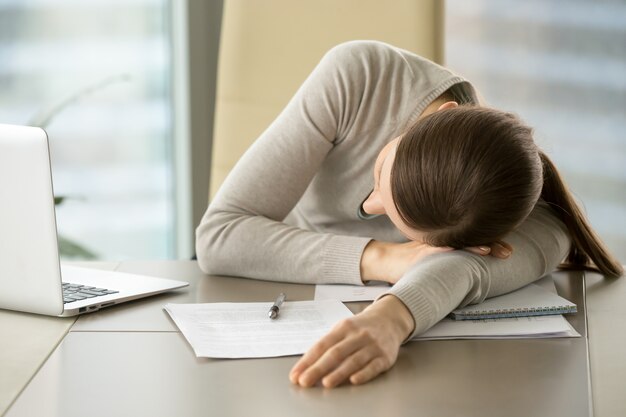
A lot of people believe that feeling tired is just a normal part of being an adult. However, we often accept more fatigue than is really necessary or healthy. We tend to dismiss tiredness, muscle aches, irritability, and difficulty concentrating as simply needing more sleep. While the average adult should aim for about eight hours of sleep, you might still feel good with six hours or less if you take care of yourself in other ways.
If you haven’t had an annual check-up with your doctor, it’s a good idea to start. Your health examination and the tests your doctor orders can help identify potential problems early on. If you do have a condition or the early signs of one, your doctor can treat it before it becomes serious. Fatigue can be a symptom of various medical conditions, but your doctor needs to do an exam to pinpoint which one it might be.
Feeling tired all the time can make the idea of exercising unappealing, but research shows that regular exercise boosts energy levels, even in people with conditions like cancer or chronic fatigue. Some studies even show that exercise can be more effective than stimulant medications for reducing fatigue. Exercise has a lot of benefits, so try to set aside about half an hour each day for it. You don’t need to join a gym; brisk walks, jogging, and other forms of movement can also improve your health and energy levels.
B vitamins are crucial for energy. Due to age-related changes in how the stomach absorbs B12, older adults need to consume more of this vitamin to stay healthy. B12 is available in supplement form, as a tongue strip, or even an injection.
When your body loses more fluids than you take in, you become dehydrated. Simple activities like urinating, sweating, and breathing cause water loss, so it’s essential to replace that lost fluid. Drinking water regularly throughout the day can help reduce fatigue and increase your concentration and alertness. One easy rule to remember is the 8×8 rule, which involves drinking at least eight 8-ounce glasses of water each day. Carrying a water bottle with you can make it easier to hit this goal.
Irregular sleep patterns or not getting enough sleep will make fatigue worse. The National Sleep Foundation suggests that adults over 18 should aim for seven to nine hours of sleep each night. Additionally, taking a 10 to 30-minute nap in the middle of the day can help ease tiredness.
To develop better sleeping habits, try to go to bed and wake up at the same time each day. This helps your body get into a pattern and trains you to sleep during these hours. If you find it hard to get to sleep on time because you’re too busy, you might need to rethink how you organize your day to make better use of your time. Sometimes, a little schedule reorganization is all it takes.
Omega-3 fatty acids are important for health and have been shown to help prevent heart conditions and other serious health problems. Since your body uses them to generate energy, they might also help ease fatigue. These fatty acids are found in foods like fatty fish, nuts, and flaxseeds. Try to incorporate omega-3-rich foods into your diet as often as possible. While supplements are available, getting these fatty acids through food is the recommended approach.
Whether you prefer smaller meals throughout the day or stick to the traditional three meals, eating regularly is important to keep your body full of nutrients, vitamins, and minerals to combat fatigue. Aim for more wholesome foods, such as complex carbs and whole grains, to keep your blood sugar levels steady. If you’re often on the go, have healthy snacks on hand to avoid the temptation of junk food.
If you try just one or two of these simple steps, you’ll likely see an improvement in your energy levels. Changing your habits overnight isn’t easy, but if you try a new tip each week, you’ll have a better chance of making these changes permanent. Chronic fatigue can be tough to deal with, but you have the power to put an end to it for good!